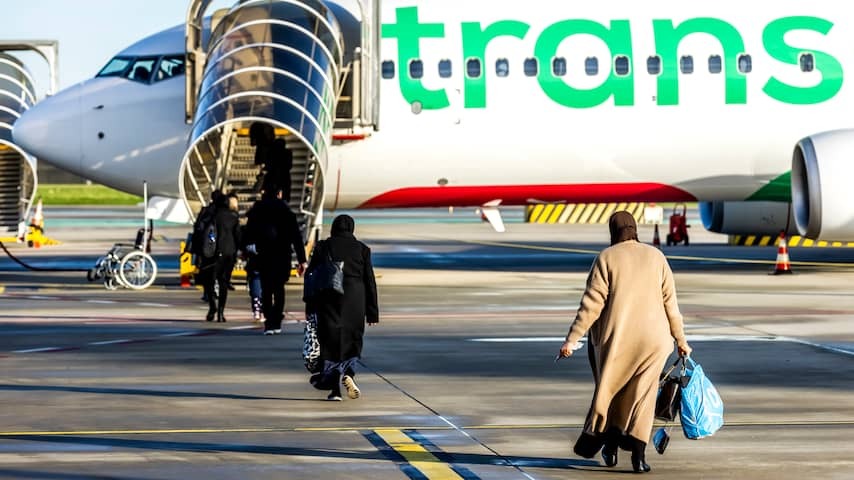
Caroline flew with Transavia to Tenerife. For the most relaxing flight possible, she paid extra for, among other things, priority boarding. But one fellow passenger after another boards the plane before her. Is that allowed? NU.nl is investigating.
Caroline Carlos Uittermark likes to have some extra comfort when she flies. So she chooses the most expensive option with Transavia: the Max Package. This allows you to choose your own seat, bring extra cabin baggage, and earn extra miles. It adds about 65 euros to the ticket price.
The Priority Boarding option is the most important for Caroline: it allows you to be one of the first to board the plane. She is hard of hearing and just likes that, she says. Moreover, she is quickly overstimulated due to acquired brain injury.
Transavia is a subsidiary of KLM and is known as a budget airline. Therefore, only Economy Class is offered, but you can choose upgrades.
Voucher of 20 euros
At the airport, things go differently for Caroline. In Spain, she is simply laughed at when she indicates that she has paid for Priority Boarding. In the Netherlands, too, she is not one of the first on board. This doesn’t happen once, but on two vacations to Tenerife.
She goes to complain. Transavia replies that Priority Boarding is not possible at every airport. They offer Caroline a voucher of 20 euros as compensation. A bit strange, she says. “When it was my birthday, I got a voucher of 30 euros.” Caroline reports to the Human Environment and Transport Inspectorate (ILT). They indicate that they do not handle individual cases and are not a supervisor of tariff conditions.
Inquiries from NU.nl at the ILT reveal that rules for passengers with reduced mobility must be observed by Transavia. If Caroline had requested medical assistance, she would have been escorted to her seat. Caroline is hard of hearing and could have asked for that. But the issue is about tariffs: we need to be with the Authority for Consumers & Markets (ACM).
Mobile impaired first on board
A sad story, says Saskia Bierling of the ACM. She has noted the report internally, because the ACM, like the ILT, does not look at individual cases. Bierling: “If there is something structural, we could intervene. Caroline has paid for an extra service that has not been (fully) delivered and in theory this falls under the supervision of the ACM.”
Caroline can ask for reimbursement of the extra costs if the service has not been provided, says Bierling. But the extra packages for flights include more services, such as seat reservation and extra baggage. It is difficult to determine how much money she should get back, because some of the services have been provided.
Caroline should have asked for medical assistance, says Paul Weber on behalf of Transavia to NU.nl. At many airlines – including Transavia – as a hard of hearing passenger you can board earlier than other passengers.
Priority Boarding works differently in practice than you might think, says Weber. “It is arranged differently at every airport. At many airports you are first driven to the aircraft in a van. It is impossible to let someone get out of the van first.”
‘May not feel like Priority’
Tenerife works with zones, Weber explains. Passengers with a mobile impairment and passengers with children under the age of two board first. Then follows zone 1: passengers with a so-called Max Ticket and passengers who have booked hand baggage, including priority boarding. “That zone 1 can consist of seventy people. If you are one of the last there, it doesn’t really feel like priority.”
Weber finds it annoying that there is a misunderstanding about what Priority Boarding entails. Out of goodwill, 65 euros are ultimately transferred to Caroline. She mainly hopes that there will be more awareness and understanding among airlines when they have to deal with hard of hearing travelers.